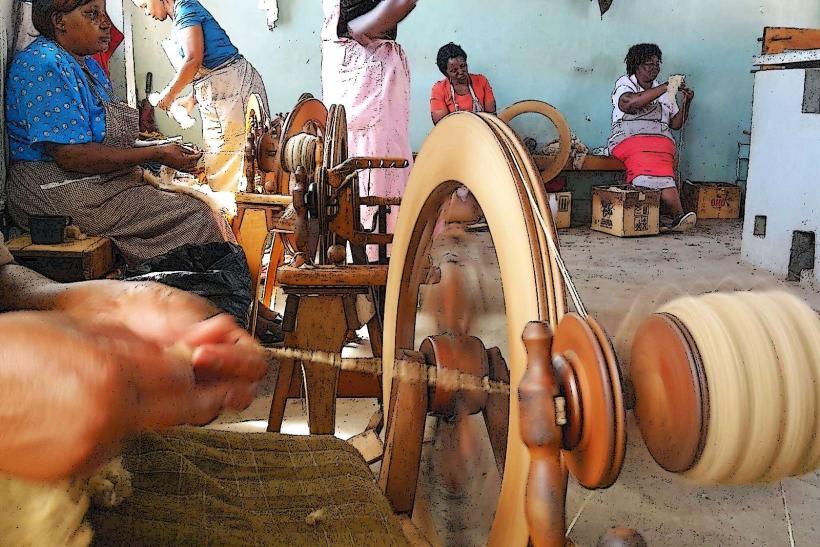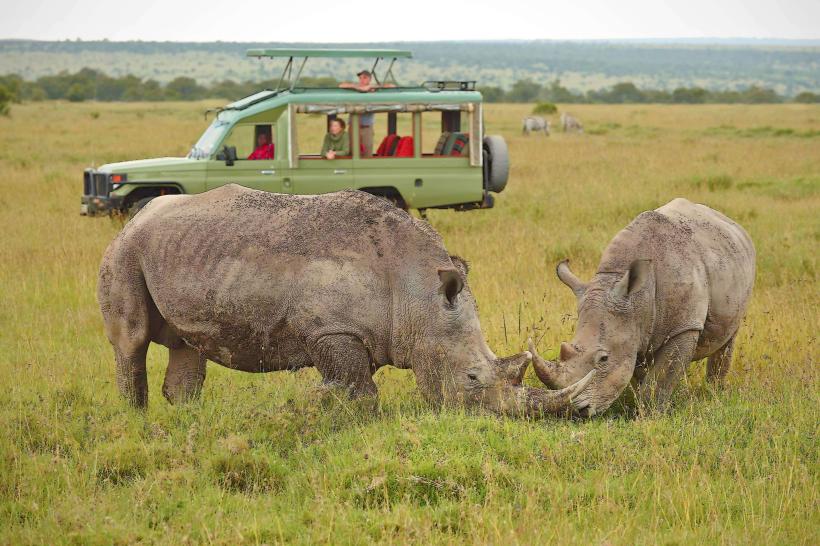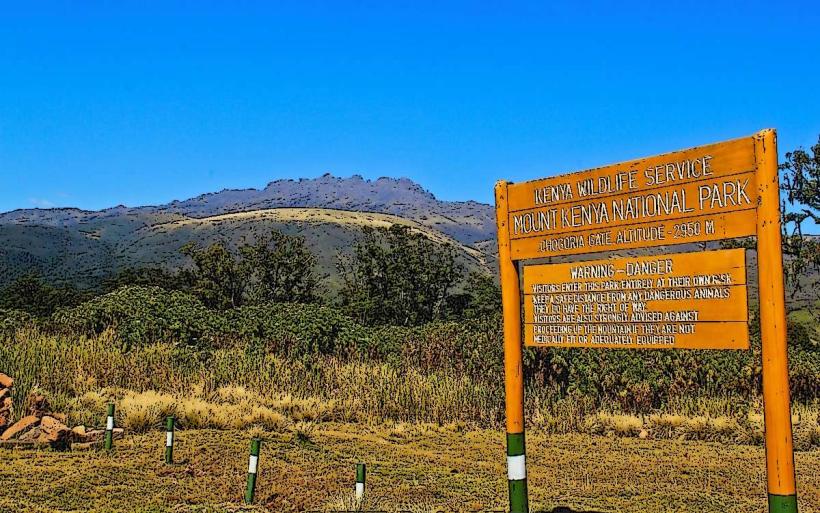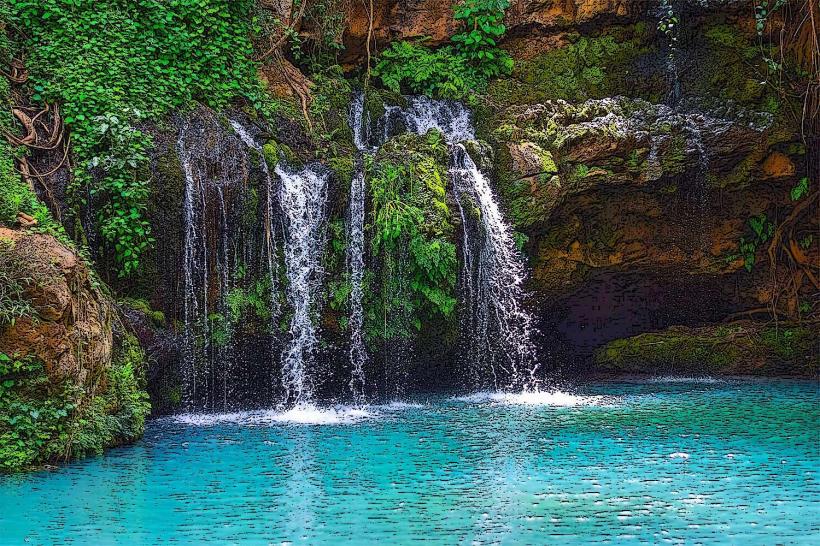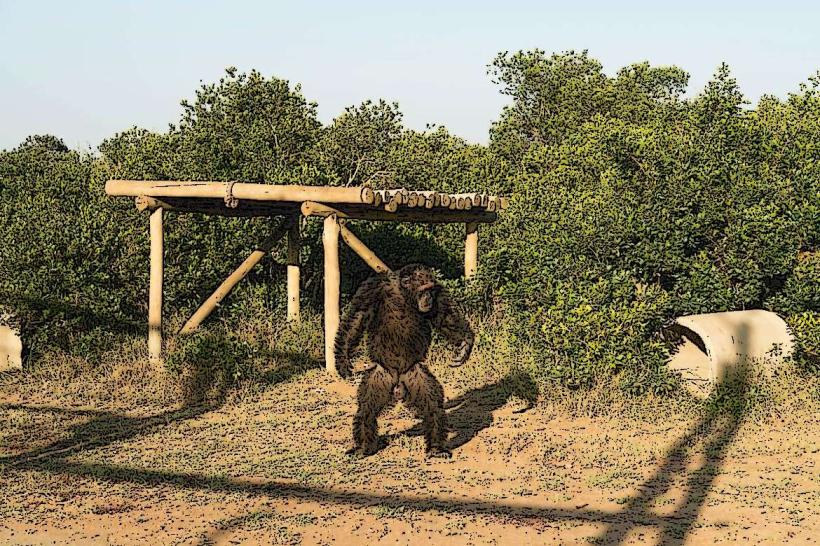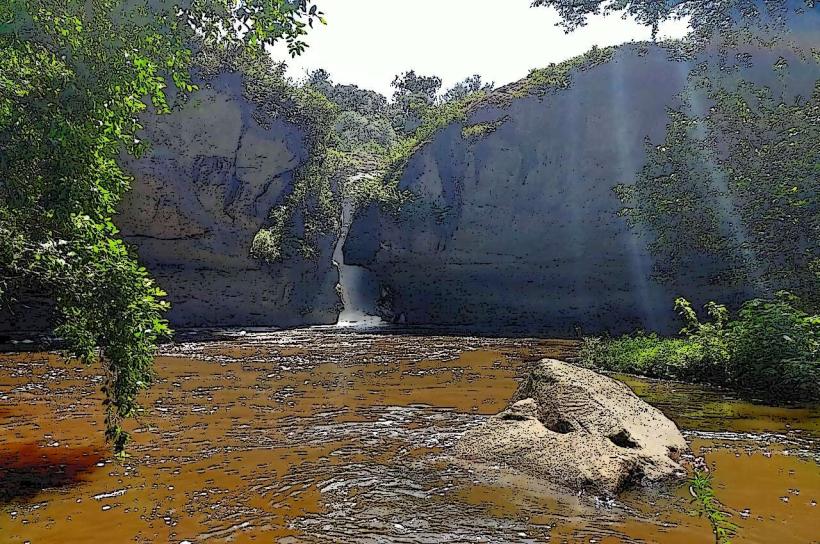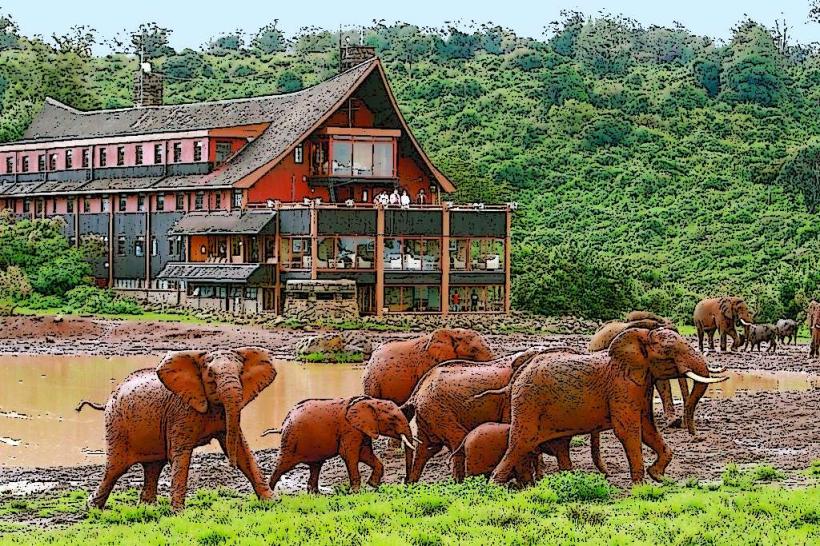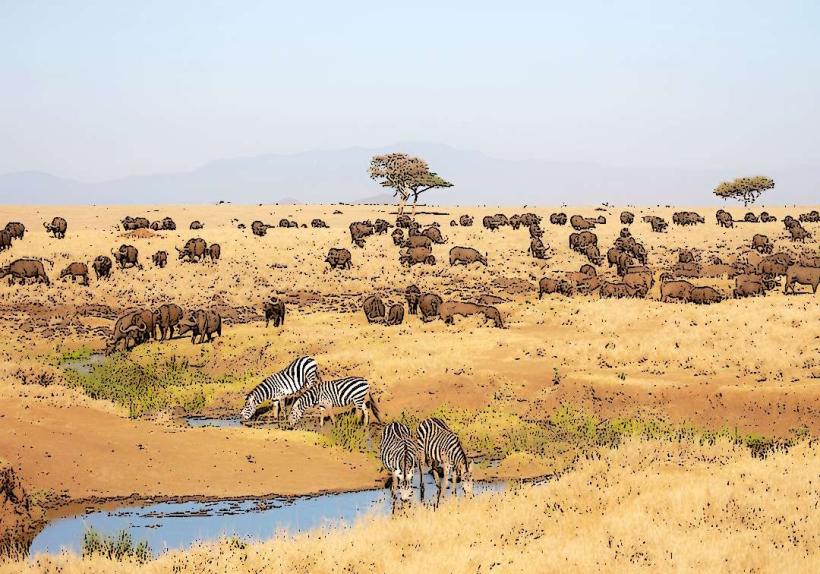Information
Landmark: Equator MarkerCity: Nanyuki
Country: Kenya
Continent: Africa
Equator Marker, Nanyuki, Kenya, Africa
The Equator Marker is a prominent landmark located along the equator, which runs through several countries around the globe, including Kenya. In Kenya, it passes through the central part of the country, and one of the most popular and easily accessible spots to visit the Equator Marker is near Nanyuki, just north of Mount Kenya.
Location
The most well-known Equator Marker in Kenya is located on the Nanyuki-Nairobi highway, roughly 150 kilometers north of Nairobi. The marker is situated at a specific point on the Earth’s surface where the Equator, or the zero-degree latitude line, divides the planet into the Northern and Southern Hemispheres.
Key Features and Attractions
The Equator Line
The equator is the imaginary line that divides the Earth into the Northern and Southern Hemispheres. At the Equator Marker in Kenya, visitors can literally stand with one foot in the Northern Hemisphere and one foot in the Southern Hemisphere. This unique geographical location makes it a fascinating spot for tourists.
Scientific Demonstrations
Many visitors are amazed by the scientific demonstrations that take place at the Equator Marker. These demonstrations showcase the effects of standing on the equator, such as:
Water Drainage Test: Water drains differently in the Northern and Southern Hemispheres due to the Coriolis effect, which is the result of the Earth's rotation. Visitors can observe this phenomenon with water draining clockwise in the Southern Hemisphere and counterclockwise in the Northern Hemisphere.
Balance Test: It is also said that objects or people can balance perfectly at the equator, as there is no gravitational pull toward either hemisphere. This is a fun experiment where people try to balance an egg on a nail or other objects to see if it can stay steady.
Tourist Experience
The Equator Marker has become a popular tourist attraction where visitors can stop, take photos, and buy souvenirs from local vendors. The area surrounding the marker is typically well-maintained with informative plaques and signs about the importance of the equator and its role in geography and climate.
Many visitors choose to take a photo at the equator line to mark the unique experience of standing on one of the most significant latitudes on the planet.
Cultural Experience
The equator region is also home to local communities who have long recognized the significance of this geographical feature. Visitors can learn about the customs, traditions, and lifestyles of the indigenous people living in the area. Some local vendors offer arts and crafts, making it a great place to support local artisans.
Access and Facilities
The Equator Marker is easily accessible from major roads, including the Nanyuki-Nairobi highway, and there are small kiosks and visitor centers where tourists can get more information about the site. In addition to the usual travel necessities, you can find a few local eateries and shops selling food and souvenirs.
Nearby Attractions
The area surrounding the Equator Marker is home to several other attractions, making it a great stop on your way to Mount Kenya or Nanyuki. Visitors can explore:
Mount Kenya National Park: Only a short drive from the Equator Marker, Mount Kenya offers hiking, wildlife viewing, and beautiful landscapes.
Nanyuki Town: A gateway to other attractions in the area, including the Ol Pejeta Conservancy and Sweetwaters Chimpanzee Sanctuary.
Visiting Tips
Best Time to Visit: The Equator Marker can be visited year-round, but the dry months (from June to September and December to March) tend to be the most pleasant.
What to Bring: Comfortable clothing and footwear are recommended if you plan to explore the area or take part in the demonstrations. You may also want to bring a camera to capture the unique experience of standing on the equator.
Traveling: The Equator Marker is accessible by car from Nairobi or Nanyuki. The drive from Nairobi typically takes about 2-3 hours.
Conclusion
The Equator Marker is a fascinating and unique geographical landmark in Kenya, offering visitors the chance to experience the divide between the Northern and Southern Hemispheres. Beyond being a fantastic photo opportunity, it provides an educational and fun experience with scientific demonstrations that showcase the effects of the Earth’s rotation. It's an iconic stop for anyone traveling through central Kenya, offering a chance to explore the intersection of nature, science, and culture.

